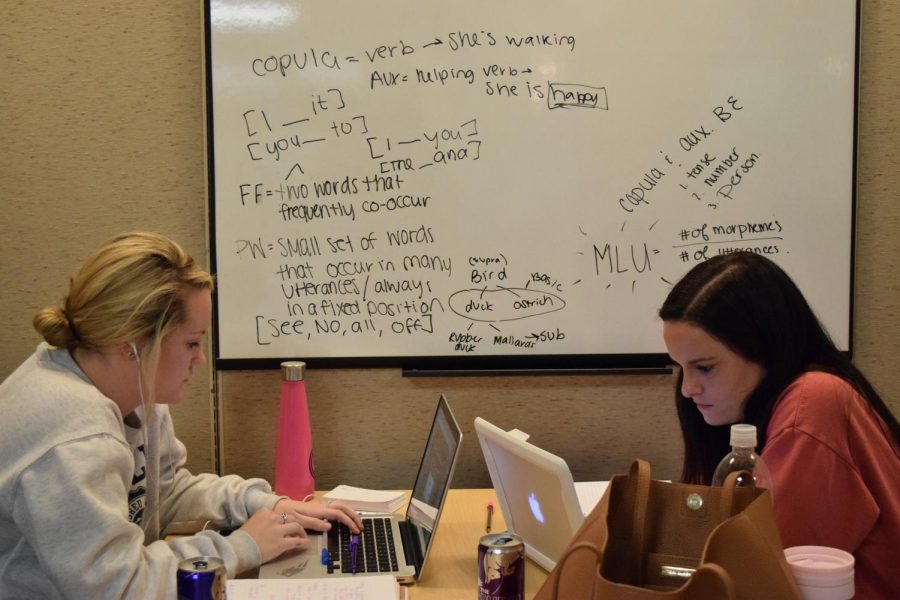Exam: the one word that will catch the attention of any college student. In the college world, many students experience lack of sleep, bad eating habits and anxiety due to long hours of studying, writing papers, partying or indulging in extra curriculars. Reminiscing on the school years prior to college, many students have become acclimated to teachers assigning busy work that will help boost their grade at the end of a semester. Once you hit college the hand holding is put to an end and you are expected to be in charge of your own academic career .The grade you receive in a college class is often measured by the effort you put into the class, assignments and work. Your grade in a course can be calculated simply from attendance, quizzes and exams, rather than adding projects, homework, and extra credit into the mix as a grade booster. Exams and midterms are crucial as they could ultimately count for as much as 60 percent of your overall grade in some classes.
The first step to prepare for midterms is to remain organized.
Write down the dates of each exam in your notebook or enter it into your online calendar. It is important to note the date of your exams as it will allow you to manage your time studying and preparing. If you want to do well on exams and work hard for the grade you earn, studying is first and most important step. A helpful tactic is to review your notes, readings and previous assignments throughout the week to make sure you understand the material you are learning. A way to challenge your knowledge on what you’re studying is to quiz yourself by making flashcards or a Quizlet. The concept of repetition will aid your brain in retaining and understanding the information.
The second step is to find what works for you.
There is great diversity among the many ways people prefer to study. Though independent studying is useful and often successful, it can also be helpful to participate in group meetings and review sessions to ask questions about concepts that may confuse you. A professor’s office hours are a valuable resource for students to use. Looking for outside help is nothing but beneficial towards you; be sure to utilize the resources available. Be on alert for review sessions that the professor or TA may hold, spend time reviewing old PowerPoints or assignments and make sure you look back on readings that were assigned from the textbook or uploaded on Moodle. Go out of your way to ask what content your midterm will cover; if it’s cumulative or not, if it will be multiple choice, fill in the blank, matching, true or false or even essay style.
The third step is to break it down.
Studying can oftentimes become overwhelming, so it is vital to take breaks and reward yourself to maintain motivation. Don’t overload yourself by cramming everything in at once, instead try to pace yourself. Try to take a five-minute break every hour by stretching, getting some food or rewarding yourself with phone entertainment. It’s difficult to isolate ourselves from distractions. Some students focus well with music and background noise, while others prefer silence, which can easily be achieved on one of the many quiet floors in the library. Study in a location where you are comfortable but focused and not surrounded by distractions. Sometimes it is helpful to turn off the TV, silence your phone and sit at a desk to review over notes.
The last step is to take care of yourself.
When it comes to studying, retaining information can be hard, as you are expected to remember a great amount of detail for the exam. Tips for memorizing information are to create mnemonic devices such as rhymes or acronyms that will help you remember crucial points that may help answer a question on the exam. Staying healthy and keeping a positive mindset can become overshadowed while students tend to drown themselves in studying. It is common for students to stay up all hours of the night studying, losing sleep and not properly eating. Our brains function on sleep, food and water, so be sure to rest, eat protein and stay hydrated. Try to maximize your cardio by walking or jogging, as it is statistically proven to lower stress levels.
As midterms are quickly approaching, keep this advice and these tactics in mind while studying. The most important thing to remember while preparing for midterms is to be patient with yourself and to remain calm and confident.
Jillian Bamdas is a Collegian contributor and can be reached at [email protected].



















